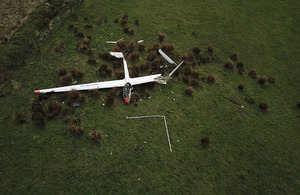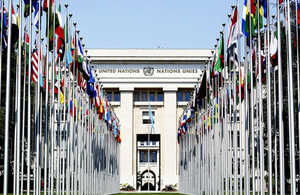Statement of the Troika Embassies in Juba, South Sudan
The text of the following statement was issued jointly by the Embassies of the United States, Norway, and the United Kingdom in Juba:
On the occasion of the visit of the Norwegian and UK Special Representatives to Juba this week in advance of the expiry of the pre-transitional period on 12 November, the Troika wishes to reiterate its commitment to South Sudan. The people of South Sudan want and deserve peace.
We have heard the commitment from all parties to the permanent ceasefire. We expect the parties to make these commitments explicit and public. We have reinforced the fundamental importance of avoiding a return to armed conflict – any outstanding issues should be resolved through dialogue and compromise.
We welcome the fact that President Kiir and Dr. Riek Machar will be meeting face to face this week to discuss the many outstanding issues and hope this will become more regular and include all the signatories of the Revitalised Agreement on the Resolution of the Conflict in South Sudan (R-ARCSS). We recognise the region’s leadership, and welcome IGAD’s initiative to bring all the parties back together in Addis Ababa. It is important that these meetings provide the clarity necessary to allow people across the country to retain confidence in this process. Any unilateral action is against the agreement and the spirit of the peace process. We call on IGAD to regularise the status of Dr. Machar since we believe this would facilitate greater progress.
We recognise that there are discussions ongoing about the next steps and in order to ensure the peace process stays on track and moves forward, we believe that the parties now have to determine how they will address the challenges the agreement has faced since September 2018. This should include:
- an immediate release of the funding previously promised by the Government for the peace process
- commitment from all sides to make faster progress in the creation of the National Unified Forces
- a clear timetable for inclusion of the agreement in the constitution
- a compromise interim proposal to address the number of states
- inclusion of 35% of women in every level of government as agreed by all the parties in Addis; this along with greater youth representation would build a stronger peace
We reaffirm our conviction that allowing civil society and the media to engage in discussions about this agreement is essential to ensure sustainable peace and an inclusive government.
This is a critical period to make progress on these pre-transitional tasks as agreed by the parties almost fourteen months ago, to exercise the spirit of political compromise at the heart of the agreement, and to move the South Sudanese peace process forward by establishing a genuine unity government on 12 November in accordance with the commitments made by the parties in the R-ARCSS. We also recognise that the R-ARCSS sets out a much wider range of tasks to be addressed under each of its chapters. We look forward to working with the parties and the IGAD on the transparent and accountable implementation of the R-ARCSS and emphasise that maintaining the ceasefire is the fundamental requirement for successful implementation of all aspects of the peace process.

